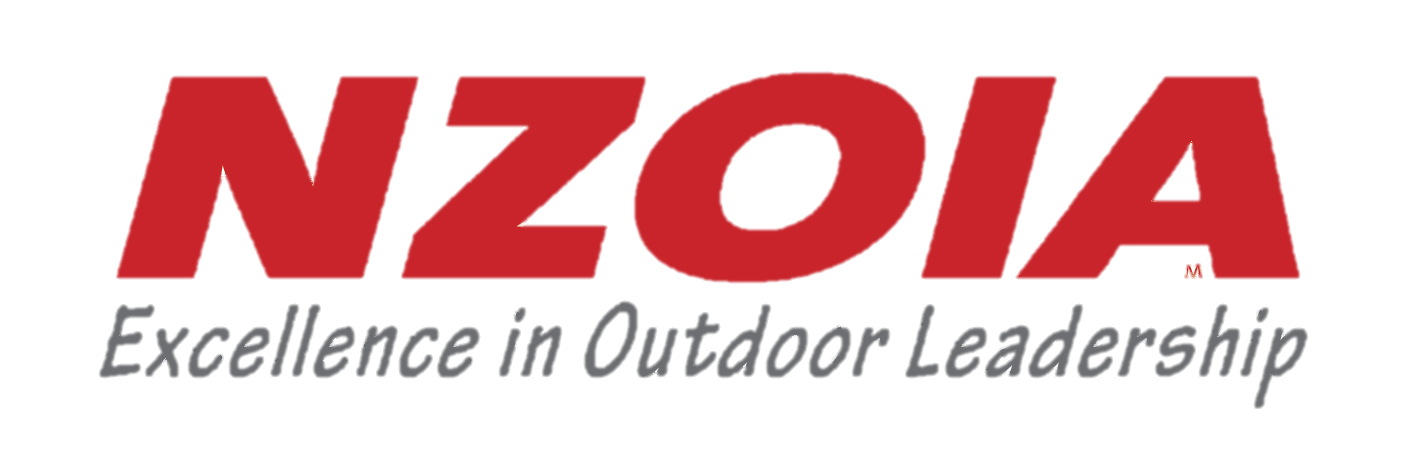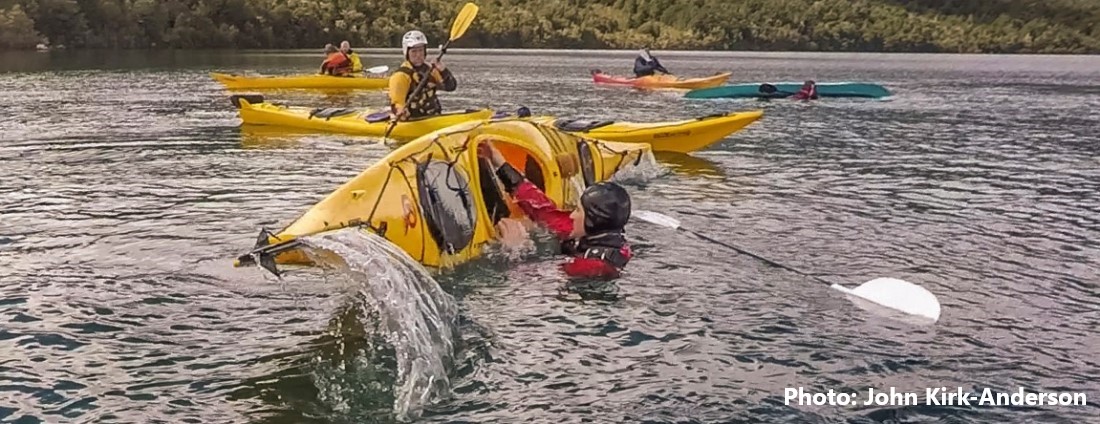Assessment
Assessment Calendar | Free Range Assessments | How to Apply | Assessment Course Fees | Fees Policy | Prerequisite Exemption Policy
Assessments can involve long and intense days. Be wary of going into an assessment fatigued and plan some downtime following an assessment. Please do not drive home tired.
NZOIA wants assessments to be a positive learning experience. We recommend that candidates read the Scope and Syllabus documents carefully and train thoroughly. A good way to do this is by attending an NZOIA pre-assessment training course. We strongly recommend that you attend a relevant NZOIA training course 3–12 months before attending an assessment course.
Limited Time Offer - Save $100!!
From 1 July 2021 to 30 June 2022 NZOIA is offering a Pre-Assessment Training course and Assessment package. For more details click here.
How do I apply to be assessed?
To sit a NZOIA 1 and 2 qualification you need to apply for an assessment through NZOIA. The preferred method is through the NZOIA Course Calendar, however if there are no dates that suit, you may request a Custom course.
Endorsements (such as the Sport Climbing Endorsement for Rock 1) can be applied for through the course calendar or by arranging a Free Range Assessment.
Leader qualifications and Climbing Wall qualification assessments are run through the Free Range Assessment model.
Whether you are doing a scheduled NZOIA Assessment, Custom Assessment or Free Range Assessment, you must ensure that you meet all the prerequisites (as dictated in the Scope and Syllabus) before you can attend an assessment.
Prerequisites
Before attending an assessment course, you must:
- Be a current Full Member or working under an Affiliated Membership of NZOIA
- Be at least 20 years of age for NZOIA 1 and 2 assessments, and 18 years of age for NZOIA Leader and Climbing Wall assessments.
- Hold a current First Aid Certificate (minimum of 12 hours or 2 days including some direct contact with course tutors)
- Have the required total, personal and instructional experience for the assessment as evidenced in a logbook and NZOIA Summary Sheet
- Meet any discipline specific prerequisites as set out in the relevant Scope and Syllabus e.g. hold Bush 1 and attendance on an Avalanche Risk Management course before attending an Alpine 1 assessment.
- Pay the course fee
If you are doing a Free Range Assessment, these documents must be sent to your Assessor.
Please note: Not submitting the required prerequisite documentation before the assessment will result in a deferment. Deferments incur a $50 administration fee on submission of required evidence to pass.
Logbooks
A logbook is a critical part of assessment. It's the basis of your CV and professional development plan. For each experience, it could record date, location, activity, weather, group, length of time, your role, any incidents, and any learning points. Employers might view it to validate your personal and professional experience.
We encourage you to use the NZOIA online logbook which you can access once you are logged in by clicking on the Members tab.
Logged experience
This is the minimum experience needed to develop the skills required to pass the course. We recommend you exceed this to give yourself a better chance of a positive assessment course.
Fees
The fees that NZOIA charges cover less than half the cost to run the scheme, NZOIA absorbs the balance through external funding.
The Assessment Process 
The assessment course is designed to give candidates the best opportunity possible to demonstrate their knowledge and abilities in both the personal and instructional fields. The Assessors facilitating the course strive to create an environment that is non-threatening, where communication is open, and candidates feel able to perform their best.
During the course the candidates are required to complete a variety of tasks that enable the Assessors to gain an understanding of the candidate's standard of competence. Evidence of this is gathered through written tasks, observation and questioning. At the completion of each task the candidates will receive feedback on their performance. This will be completed using feedback methods suited to the candidate and the situation. The process is facilitated to provide a constructive assessment and learning environment, improving each candidate's ability to accurately perceive what their strengths are, and areas that need improving.
The feedback is then followed by an allocation of an assessment grade on the candidate's performance relative to the required minimum standard of competence for each criterion. This will occur at regular intervals during an assessment course to ensure the candidate has an accurate understanding of how they are performing relative to the whole qualification.
Assessment Grading Scale:
- Well below the specified standard of competence
- Slightly below the specified standard of competence
- Competent performance of the specified standard
- Slightly above the specified standard of competence
- Well above the specified standard of competence
Assessment results
Pass
The candidate achieves at least the minimum benchmark of competence in all areas.
Conditional Pass
The candidate has demonstrated a Pass result in all the tasks that were able to be set. All components assessed must be at or above the specified benchmark of competence.
If due to environmental conditions an assessment task cannot be performed on the assessment, then the candidate receives a Conditional Pass until they are seen by an Assessor performing the task in the required conditions.
Deferment
The candidate is below the minimum benchmark in a few of the competencies, none of which threatens immediate safety of self or clients and these can be reassessed in less than one day at a later date. Candidates have one chance at a reassessment. Reassessments incur further fees. See Course Fees.
Resit
The candidate is below the minimum benchmark in a significant number of competencies, or they critically compromise safety. They need to re-sit the full assessment. A person who fails an assessment may not attend another assessment in the same discipline within three months of the failed assessment.
There is a right to appeal the result.
Transferring qualification levels during an assessment
If a candidate does not pass a qualification that they are sitting, they will not be awarded with a lower qualification. If they want to hold a lower qualification, they will need to sit the appropriate assessment. For example, if a candidate fails Rock 2 they cannot be awarded Sport Climbing Endorsement.
If this option was available, it could have detrimental effects on the assessment process including:
- Adding pressure to the assessor to essentially run or think about two or three assessments at once. e.g. A Kayak 1 candidate isn’t passing their Kayak 1 and decides they want to sit Kayak Leader instead. The assessor needs to then see or defer the candidate on an All in Rescue to satisfy the Kayak Leader requirements.
- Candidates coming unprepared thinking that they may as well try for a higher qualification and receive the one below if they do not achieve it.
Model Clients
Each assessment requires a group of 'Model Clients' so Assessors can observe candidates run a session with real clients and assess their competence, instructing, group management and people skills, in an authentic, safe and controlled environment.
Four weeks out from the assessment in the Pre-Course Information letter, candidates will receive a generic statement outlining the typical model client they will be teaching at that level e.g. NZOIA 1 model clients usually have a little experience in the activity and are high school age and above. There may also be some detail related to the specific activity e.g. Canyon 1 model clients should be water confident and 12 + years old.
We aim for the Assessor to have the details of the model clients on the Monday prior to the assessment or earlier.
Candidates will be briefed on the details of the model clients during the assessment.
At their discretion the Assessor may pass this information on earlier to all the candidates if they think it is important for the safe running of the course. This may be due to the weather forecast, atypical model client groups, equipment sourcing etc.
Qualification Registration and Currency
Any assessment should be viewed only as an indication that a particular level of expertise was demonstrated at a particular time. This should not be interpreted as an immediate guarantee of competence by any employer, but should be used in conjunction with the ongoing log of experience and professional development since assessment was made.
For the qualification to remain registered with NZOIA, and therefore current, the qualification holder must:
- Maintain annual Full Membership and Registration with NZOIA
- Maintain a current First Aid certificate
- Revalidate their qualifications on a four yearly cycle
- Log personal and instructional experience and professional development
The End?
A qualification should not be the end or goal of your professional training. It should be viewed as a point on a continuum in your professional career, and be part of a pathway of continually improving your knowledge, skills and experience guiding and instructing. NZOIA qualifications become unregistered after four years, at which time they must be revalidated to be considered current.

